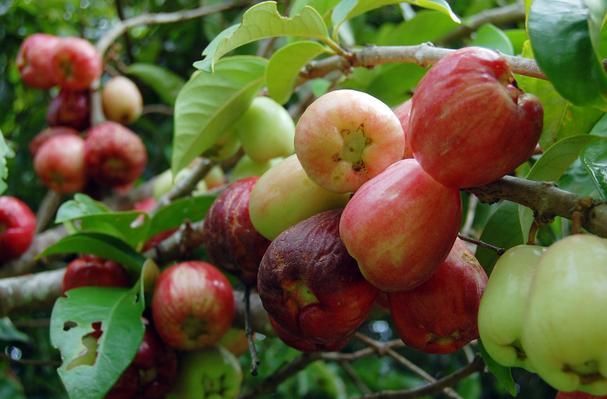Apart from being a renowned entrepreneur Akinyemi Oluwagbenga is also an agronomist. Akinyemi is the pioneer of Malay farming in his home country, Nigeria. He takes his time to share out the business opportunities and uses of apple. There is an assumption that Malay apples originated from Southern Asia. The specie is commonly cultivated from Java to the Vietnam and Philippines. In Malaysia, it is referred to as Malay apple. Jamaicans refer to it as Jamaican apple and Nigerians referred to it as Bell apple.
By now the cultivation of the specie is taking place across other regions of Central America. This includes Costa Rica, El Salvador, and Belize. Additionally, it is mostly cultivated in Venezuelan parks and gardens. According to Oluwagbenga, the apple specie came to Nigeria through research finding. Since it is a tropical plant, the apple needs high rainfall. It also does well under an ample humidity, and not cold temperatures. Nigeria offers all the necessary requirements for it to do well.
Planting of the Malay tree can take place in gardens, parks, homes. It is also an apple plantation used for commercial reasons. The Malay apple tree is usually ready to produce apples three years after the planting date. This is different from the temperate apple specie which starts to produce apple on its sixth year after planting. Malay apple is in a position to produce two or three apples from each tree annually. Each tree is in a place to produce 1,000 apples in every harvest as it gets old. This is almost 2,000 apples on each tree annually. It yields averagely 21 to 84 kg from each tree. Furthermore, the tree is I a position to do well in different types of soil from heavy clay to sand. It is in a place to withstand soils that are moderately acidic. But it does not do well in a basic type of soil.
The specie comes in three different colors that are cream, red and green. The red type is the most common color in Nigeria. The cream color is not easily found while the cream one is currently unavailable. The red colored Malay apple is highly nutritious and medicinal. These facts are from scientific researchers contained in the food chemistry. They are also listed in science journals and health sciences. The life expectant of the species is three-four days. The seeds they can stay in the tree between 17 to 19 days during the harvesting period.
The species seed is one oblate or almost round with its internal being green, and external part is brown. The seed is 1.6 to 2.0 centimeters wide. A single seed is in a position to produce above two seedlings. It takes 2-4 weeks to germinate. The seed has traces of soothing effect on respiration and blood pressure. It also has an antibiotic effect. During harvesting, each Malay apple is carefully plucked from the tree. After that it should be kept in a cool place for a short time. One needs to twist the stem of the apple to remove it from the tree.
The apple should not be stored under freezing conditions. This is to prolong its shelf life. The Malay tree is useful for different medicinal purposes. For instance, its dried leaves produce powders used to cure cracked tongue. Furthermore, their root is a solution for itching. Its root backs is a curative of dysentery. The crushed leaves produce juice used as a lotion and are also added to baths. Brazilians use different parts of the tree as solutions to diabetes, coughs, constipation, and headaches to name but a few. Seeded seeds, leaves, back, and fruits have various effects on respiration and blood pressure.
The Malay apple also offers business opportunities in places where it is grown at. For instance, Malay apple was sold out at the cost of N5 back in 2006 irrespective of its size. Currently, the big size goes for N100, small size for N50 and Jumbo size is sold at N50. A seed used to go for N50 in 2010, but now it is selling at N100 per seed. Seed is in a position to germinate between three to five weeks after the date of planting. Each germinated seed sells at N150. Seedlings always have a ready market for sell more so between Match to December every year. The Malay apple farming offers individuals an opportunity to eat fresh apple free from the chemical. The species can produce many apples as compared to the common species. Malay apple is in a position to exempt Nigeria from the importation of apple. The country imports apple from Asia, Europe, and South Africa.



